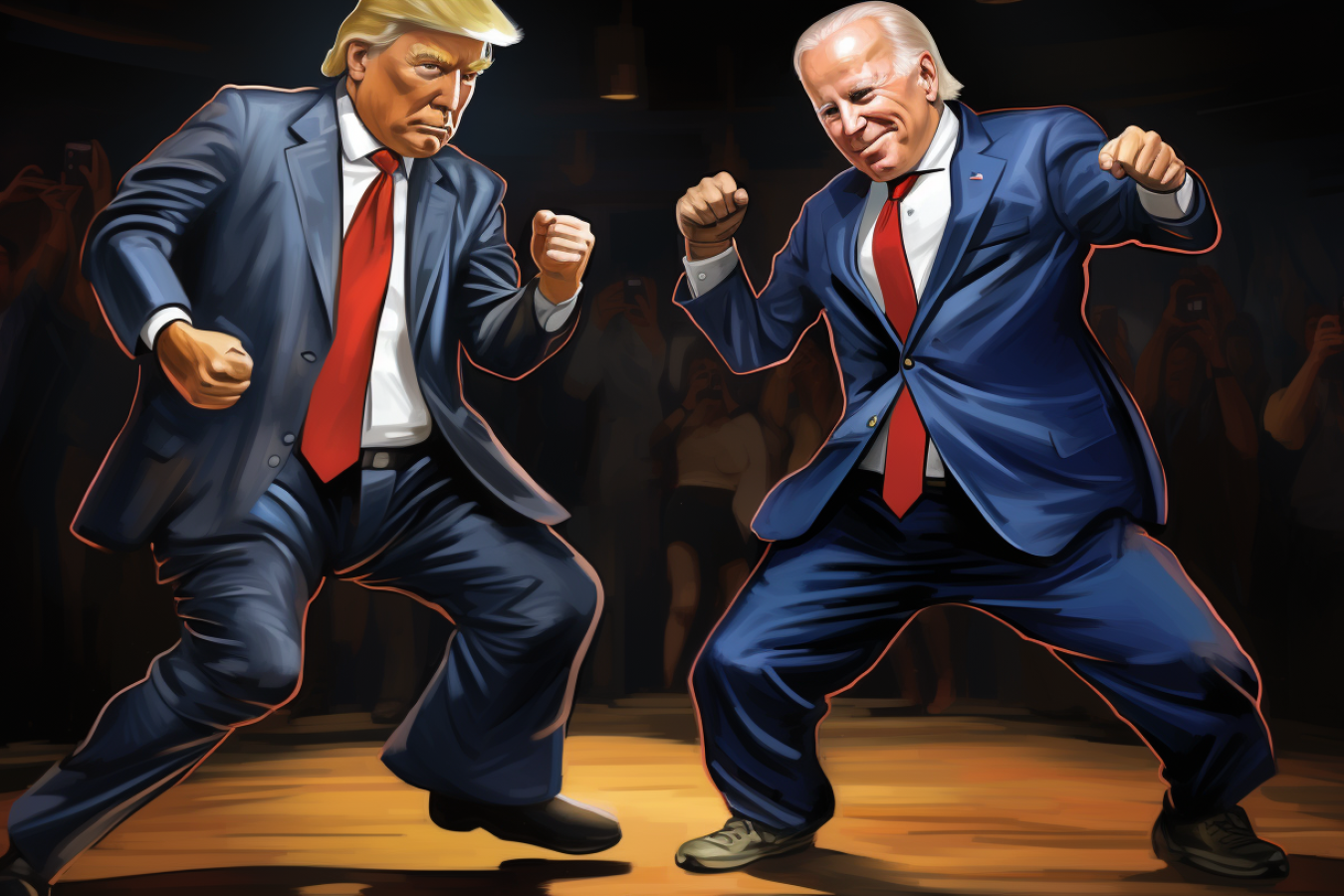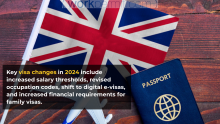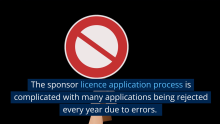Support migrant centric journalism today and donate

By Sanwar Ali:
The H-1B visa program, a pivotal component of U.S. immigration policy, plays a crucial role in the American economy. Serving as a conduit for skilled foreign workers to enter the U.S., it has profound implications for labor markets, businesses, and economic growth. However, this pivotal program has been at the center of political debates and policy changes under the Trump and Biden administrations. This article delves into the complexities of the H-1B visa program, examining the policy differences between the Trump and Biden administrations and evaluating their potential impact on U.S. businesses and workers.
The H-1B Visa Program: A Brief Overview
The H-1B visa program, initiated to bolster the U.S. labor force with skilled foreign workers, is a temporary work visa issued to foreign nationals who possess specialized knowledge in fields such as science, engineering, and information technology. The program has been instrumental in driving the U.S. economy, filling labor gaps, and enhancing competitiveness on a global scale.
Policy Differences: Trump Vs. Biden on H-1B Reform
The H-1B visa program has been subject to significant policy changes under the Trump and Biden administrations. While the Trump administration implemented measures to tighten restrictions on the H-1B visa, citing concerns about American workers' displacement, the Biden administration has aimed to reverse some of these policies, emphasizing the need, at least some of the time, for attracting global talent.
Trump Administration and the H-1B Visa Program
The Trump administration pursued a restrictive approach towards the H-1B visa program. It implemented measures that increased denial rates for H-1B employer petitions and suspended the entry of H-1B workers, under the pretext of safeguarding American jobs during the Covid-19-induced economic downturn. The Department of Labor (DOL) under the Trump administration also introduced changes to the "prevailing wage" requirements for H-1B occupations, which raised the minimum wage levels for these roles.
Biden Administration and the H-1B Visa Program
In contrast, the Biden administration has signaled a more accommodating stance towards the H-1B visa program. It has sought to reverse some of the measures implemented under Trump, including the suspension of entry for H-1B workers. Nonetheless, the Biden administration has echoed some of the Trump administration's concerns about the H-1B program, particularly regarding wage levels and the potential for program abuse. Notably, the Biden administration has delayed the implementation of the prevailing wage rule and supports replacing the H-1B lottery with a wage-prioritized selection system.
Examining the Impact of H-1B Reforms on U.S. Businesses and Workers
The policy changes to the H-1B visa program under the Trump and Biden administrations have significant implications for U.S. businesses, workers, and the overall economy.
Impact on U.S. Businesses
The restrictive measures implemented under the Trump administration, particularly the increased denial rates for H-1B petitions and the suspension of H-1B worker entry, posed significant challenges for U.S. businesses. These measures disrupted labor supply chains, created administrative backlogs, and hampered businesses' ability to attract and retain global talent. The increased prevailing wage levels also raised costs for businesses hiring H-1B workers.
On the other hand, the Biden administration's more accommodating stance towards the H-1B program could provide relief for U.S. businesses. The lifting of the suspension on H-1B worker entry and the delay in implementing the prevailing wage rule could alleviate some of the labor supply disruptions and cost pressures faced by businesses.
Impact on U.S. Workers
The effects of H-1B reforms on American workers are complex and multifaceted. On one hand, the restrictive measures under the Trump administration were premised on protecting American workers from competition from foreign workers. However, studies suggest that H-1B workers generally complement rather than replace native employment and contribute positively to the U.S. economy.
On the other hand, the Biden administration's approach to H-1B reform, which includes supporting a wage-prioritized selection system, could have implications for American workers. While these measures may appear to protect American jobs and wages, they could also exacerbate labor shortages in certain sectors and impede economic growth.
Impact on the U.S. Economy
The H-1B visa program has significant implications for the U.S. economy. The restrictive measures implemented under the Trump administration, particularly the suspension of H-1B worker entry, were estimated to have resulted in a $100 billion loss to the economy. The increased prevailing wage levels could, if it were implemented, also deter investment in the U.S. and divert talent and investment to competitor nations.
Conversely, the Biden administration's more accommodating stance towards the H-1B program could foster economic growth by facilitating the entry and retention of high-skilled foreign workers. By ensuring that the U.S. remains an attractive destination for global talent, the Biden administration could enhance the competitiveness of the U.S. workforce and drive economic growth.
Conclusion
The H-1B visa program is a critical pillar of the U.S. economy, shaping labor markets, businesses, and economic growth. The policy differences between the Trump and Biden administrations on H-1B reform have profound implications for U.S. businesses, workers, and the overall economy. While the Trump administration's restrictive measures posed significant challenges, the Biden administration's more accommodating approach could offer potential benefits. However, the impact of these reforms hinges on a variety of factors, including the specifics of policy implementation and broader economic conditions. As such, the future of the H-1B visa program under the Biden administration remains a subject of keen interest and ongoing debate.
workpermit.com helps with US Work Visa: L1, H1B, E2, and O1 Visas
There are various types of US visas that individuals can apply for, depending on their circumstances. Some of the most common employment-based visas include:
L1 visa: This visa is for intracompany transferees who work in managerial or executive positions or have specialized knowledge.
H1B visa: This visa is for specialty occupations that require theoretical or technical expertise in specialized fields.
E2 visa: This visa is for investors who have made a significant investment in a US business and, management or essential skills employees. Only certain nationalities can apply.
O1 visa: This visa is for individuals with extraordinary abilities in the arts, sciences, education, business, or athletics.
Workpermit.com is a specialist visa services firm with over thirty years of experience dealing with visa applications. For more information and advice, please contact us on 0344 991 9222 or at london@workpermit.com(link sends e-mail)





















